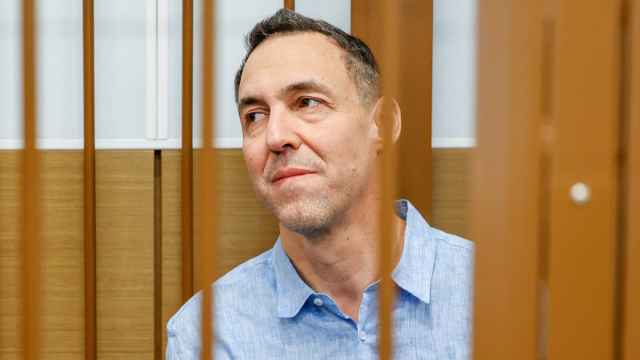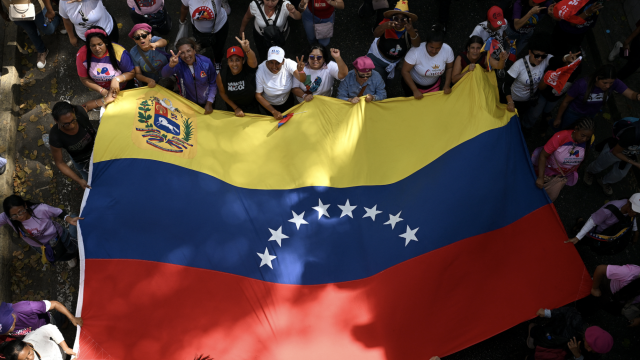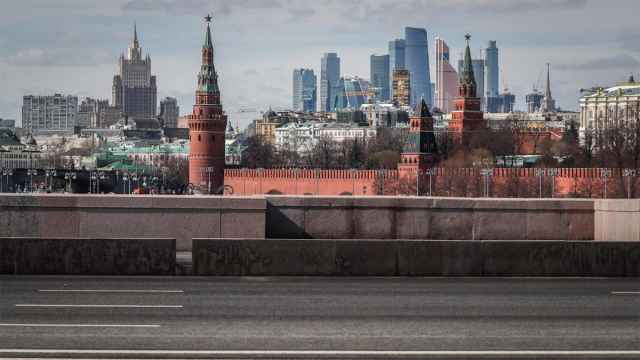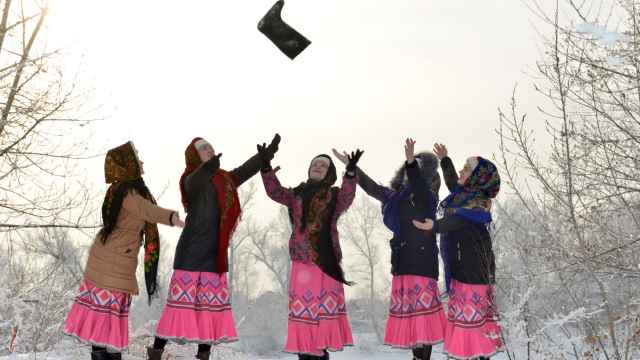Russian television blasted viewers with 15-year-old footage of NATO bombing raids, burning buildings and wounded people in Yugoslavia on Monday to step up a media campaign against the West over the Crimea crisis.
State television and newspapers used the anniversary of the start of the bombing campaign to depict the West as hypocritical for saying Crimea has no right to secede from Ukraine when NATO used force to help Kosovo escape Slobodan Milosevic’s clutches.
A program on state television called “The Serbian Tragedy: 15 Years” hammered home Russia’s message that the U.S. and NATO are to blame for redrawing global borders, encouraging separatism and flouting international law.
“The result of the NATO aggression was the final collapse of Yugoslavia and the unilateral declaration of Kosovo’s independence to applause from Washington and most European capitals,” government newspaper Rossiiskaya Gazeta said.
“One can only wonder at the overt hypocrisy of Western politicians who now accuse Russia — which Crimea has joined as the result of a popular referendum, and practically without a shot fired — of violating international law,” it said.
Serbia, a largely Orthodox Christian nation with ties to Russia, lost control of Kosovo when NATO launched bombing raids to halt Serbian atrocities and “ethnic cleansing” in a counter-insurgency war under Milosevic.
The 78-day bombing campaign has been a source of ire for Russia and an example of what President Vladimir Putin says is the frequent use of deadly force by Washington under the pretext of human rights concerns.
Kosovo, which declared independence six years ago and has been recognized by more than 100 countries despite opposition from Belgrade and Moscow, has been cited as a precedent by Putin and other Russian officials.
Voters in Ukraine’s Crimea region chose to join Russia in a March 16 referendum dismissed as a sham by Western governments who say it violated Ukraine’s constitution.
Western leaders dismiss the comparison between Crimea and Kosovo, arguing that NATO countries did not try to annex Kosovo and had scant interest there beyond protecting people.
The extensive anniversary coverage followed months of fierce criticism of the West and, more recently, of Ukraine’s new leaders in the state-run Russian media.
Ukrainian and Western leaders say Russian media have distorted the facts to portray Russians in Ukraine as under threat from “neo-fascists” though it is Moscow that has instigated violence in eastern and southern Ukraine.
Moscow dismisses the charges and accuses the West of media propaganda.
About 500 civilians were killed in Yugoslavia, at least half of them inside Kosovo, during 78 days of air strikes.
Rossiiskaya Gazeta published a huge number 88 alongside its front page story, saying that “88 children and more than 2,000 Yugoslav civilians became victims of the barbaric NATO bombings.”
State television reports featured footage of Bosnian Serb military chief Ratko Mladic and Milosevic, who died in 2006 while on trial at the International Criminal Tribunal for the former Yugoslavia.
A Message from The Moscow Times:
Dear readers,
We are facing unprecedented challenges. Russia's Prosecutor General's Office has designated The Moscow Times as an "undesirable" organization, criminalizing our work and putting our staff at risk of prosecution. This follows our earlier unjust labeling as a "foreign agent."
These actions are direct attempts to silence independent journalism in Russia. The authorities claim our work "discredits the decisions of the Russian leadership." We see things differently: we strive to provide accurate, unbiased reporting on Russia.
We, the journalists of The Moscow Times, refuse to be silenced. But to continue our work, we need your help.
Your support, no matter how small, makes a world of difference. If you can, please support us monthly starting from just $2. It's quick to set up, and every contribution makes a significant impact.
By supporting The Moscow Times, you're defending open, independent journalism in the face of repression. Thank you for standing with us.
Remind me later.





